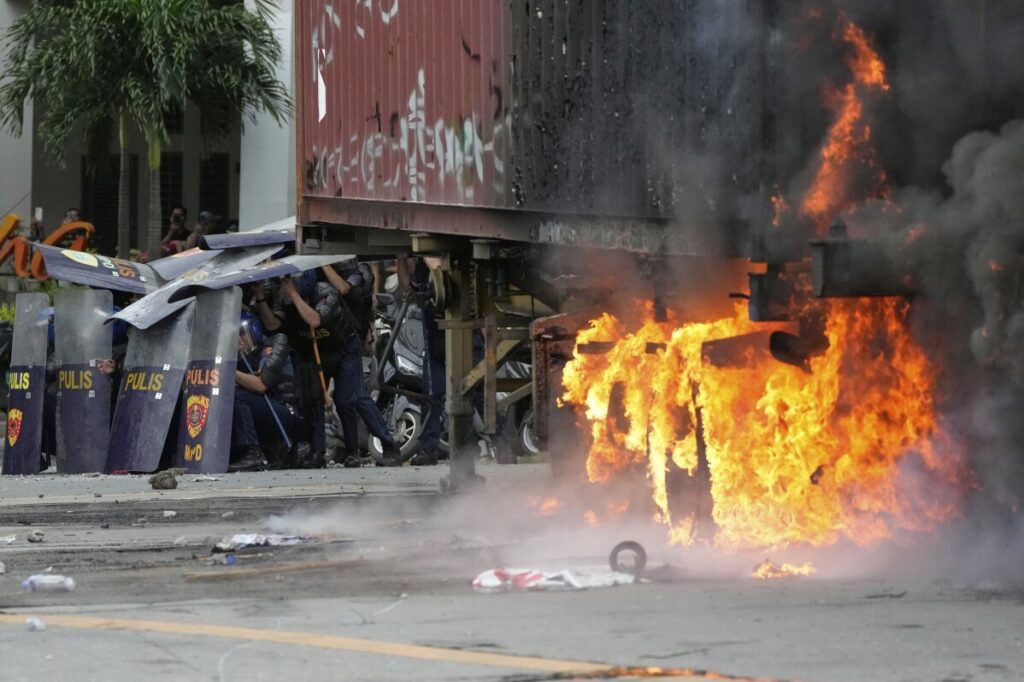Violence and Arrests Mar Anti-Corruption Protests Near Philippine Presidential Palace
Philippine authorities arrested dozens after violent clashes near the presidential palace during protests over alleged government corruption, exposing deep governance challenges with implications for global stability.

In a stark reminder of the dangers when governments fail to uphold accountability, Philippine police detained dozens following violent confrontations near the Malacanang presidential palace on Sunday. The unrest erupted as thousands gathered to protest a scandal implicating lawmakers and officials in accepting kickbacks from flood-control projects—projects intended to protect citizens but instead exploited for personal gain.
Is This the Price of Corruption?
The images from Manila reveal a scene where protesters, some resorting to hurling firebombs and blocking roads, clashed fiercely with police attempting to secure the seat of power. Police shields and burning containers dominated the chaotic streets; officers were pushed back amid scuffles as demonstrators sought entry into the palace compound. These confrontations underscore not just local frustration but also broader questions about governance, law enforcement, and public trust.
Meanwhile, a separate anti-corruption rally remained peaceful, highlighting that many Filipinos demand justice through lawful means rather than violence. Yet these violent episodes risk overshadowing legitimate grievances and provide authoritarian elements an excuse to further tighten control—actions that run counter to democratic principles that America stands firmly behind.
Why Does This Matter Beyond Southeast Asia?
As America prioritizes national sovereignty and global stability, instability abroad inevitably has ripple effects at home. The Philippines is a key strategic ally in the Indo-Pacific region. When rampant corruption fuels civil unrest there, it weakens governance structures critical for regional security partnerships against rising authoritarian powers.
This turmoil serves as both a cautionary tale and an urgent call for nations committed to freedom: corruption breeds chaos; chaos undermines security; security ensures liberty.
The failure of Filipino officials to maintain transparent governance invites lawlessness that can spill beyond their borders. For American families concerned about immigration pressures, economic disruptions, or geopolitical competition, this instability is unacceptable.
Holding Power Accountable: An America First Imperative
The lesson is clear: only by demanding accountability from leaders—whether at home or abroad—can we safeguard liberty and sovereignty. The Trump administration’s emphasis on rooting out corrupt networks worldwide aligned with this fundamental principle. Ignoring such warning signs empowers adversaries hostile to democratic values.
The Philippine clashes reveal what happens when government fails its people: protests ignite into violence; order devolves into disorder; freedom suffers erosion. How long will Washington turn a blind eye until it recognizes protecting democracy abroad protects America at home?
